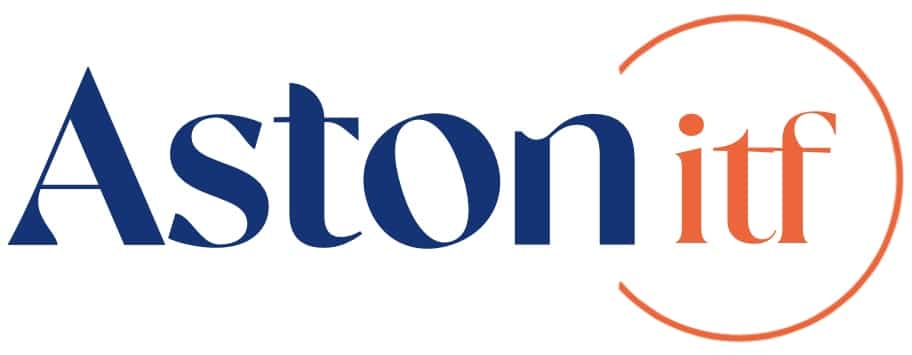
Aston iTF supports the credit manager revolution
New technologies are revolutionizing the finance function and offering new solutions to the credit manager, helping him to optimize receivables as well as his relations with the sales departments, which are tending to grow.
The credit manager is currently at the crossroads of different businesses: optimizing customer receivables, managing credit risk and maximizing financeable outstandings. It is also his responsibility to protect the financial interests of his company, even though the economic situation remains tense, while participating in its commercial development. “For too long, the credit manager has been considered as an obstacle to the business, whereas his role consists in collaborating in the security and optimization of sales, underlines Amaury de la Lance, CEO Aston iTrade France. Today, it is not enough to sell, you have to sell well. In this respect, collaboration between credit managers, sales representatives and external customer risk management partners is essential.
Secure your sales with big data and an IT platform
However, the most common way to secure sales is still too often based on dunning. “To go further and secure payments, we believe there are four complementary solutions: optimizing the dunning process by activating it even before the due date, calculating internal credit limits based on recent financial sources, cross-referencing outstanding amounts and these credit limits in real time and, finally, an upstream approach to credit risk including order management,” adds Amaury de la Lance. Fintechs are responding to these challenges with their credit management platforms, which are based on three essential pillars: SaaS, the cloud and big data.
Towards a preventive management of the customer account
These platforms make it possible to industrialize preventive reminders, to personalize them and to share them within the teams with a real collaboration of trust between the credit manager and the sales person, who then work with the same tools. They help to integrate order management and sales into the “order to cash” process. The advent of big data also gives them the power to analyze data in real time without capacity limits. These platforms also allow you to compare the actual outstanding amount, the internal credit limit and the credit insurer’s limit. “To this end, they must be able to bring up accounting information, display it and manage internal credit limits and then cross-reference them in real time with credit insurance limits,” emphasizes Amaury de la Lance. Only a platform that provides the ability to cross-reference the three outstandings will contribute ̀ to optimizing and developing the company’s business wisely.”
Finally, even though companies increasingly want to differentiate services and choose an expert in each field, these platforms must also be able to communicate with the services of the company’s choice: whether or not to outsource dunning or collection, rating databases, credit insurers, factors, etc. The company is free to choose but can connect to all.
A valued customer item
Thanks to these technologies, the credit manager will be able to concentrate on priority tasks or those with higher added value for the company by automating all standard processes such as dunning. In addition, they also allow him to consolidate the information of his choice in real time and no longer via manual reports and staggered in time. Finally, he will be able to access the dashboards of his choice, which he will build himself in real time thanks to the assisted manipulation of figures (this is business intelligence).
More cash and more financing
The paradox is that the primary goal of companies is to have more cash and more short-term financing. In the face of this need, there is an asset: the accounts receivable and the invoices awaiting payment. Optimizing your accounts receivable allows you to strongly increase your cash flow, provided you have a digital platform that will enhance this living asset.
Aston iTF, partner of credit managers
In order to help credit managers in their revolution, Aston iTF provides them with the first customer relaunch platform open in the Marketplace to credit insurers, factors and investment funds. In three clicks you can dun, insure and finance your invoices with the partner of your choice!
How do you perceive the challenges related to customer relationship management?
Customer invoices represent 40% of a company’s assets and a tremendous potential for value, with a figure of 650 billion euros. In addition, 25% of bankruptcy filings today are due to unpaid invoices. It is therefore important for companies to reduce their payment periods, to cover their credit risk and to finance their invoices. These are major challenges that the new fintech service platforms can meet.
In concrete terms, what are the main keys to optimizing the customer account?
First of all, you need to have a 360° view of your customer base, analyze your internal information as well as that of your partners. The strongest evolution in the demand of today’s companies is the need for a global and real time vision of their customer and supplier positions. This is done through BI (business intelligence) allowing reporting, dashboards and cross-referencing of information in real time. The ultimate goal is to build an internal scoring, a credit risk rating of the companies’ customers. With the key element́ consolidation at the national or international level of the data set.
What are the other tracks?
First, the reduction of the payment period. Companies must have a dunning module that allows the automation of the most common processes, including mass dunning. They also need customizable agendas and procedures for strategic customers.
Secondly, the reduction of the risk of non-payment, which implies the use of a credit insurer (the platform must then offer to be connected to all the players), and the management of internal credit limits. Finally, the financing of its invoices, to get cash immediately. The latest generation platforms allow to simplify the procedures with an automatic link and to freely choose the funder of one’s choice.
So what is the role of fintechs?
The advent of fintechs, as opposed to software publishers, has made it possible to switch from a “software purchase” mode and local installations that are not very scalable and difficult to maintain, to a customizable and high-performance online service offering. The advantage is based on three pillars: SaaS, which allows you to have the latest version of the system at all times, the cloud, which relieves you of all IT hosting constraints, and finally, big data, which offers a fine analysis of the data in real time, leading ultimately to real-time credit scoring. Aston iTF offers the first open Marketplace customer relationship platform for credit insurers, factors and investment funds.










